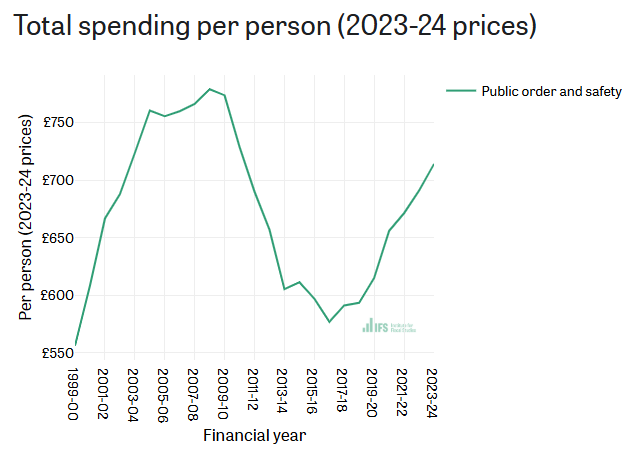
Paul Johnson
@pjtheeconomist
Director IFS.
Author Follow the Money - "gripping and horrifying, witty and brilliant" (The Times).
"Thinking person's (fiscal) crumpet" (The Times)
ID: 3057953574
http://ifs.org.uk 02-03-2015 19:51:44
4,4K Tweet
68,68K Takipçi
468 Takip Edilen



Great new tool from Institute for Fiscal Studies: real police spending per person, UK, dropped 34% from 2010 to 2016; and is still 8% lower ifs.org.uk/calculators/wh…


We asked Meredith A. Crowley to give our annual lecture even before Donald Trump won the presidential election. Given what has happened since I don't think we could have made a better choice of speaker or topic "trade wars and the future of globalisation". Do sign up.

Like Daniel Finkelstein I've yet to hear really convincing case for saving British Steel. Only plausible argument is for national security. But how and why does steel differ from e.g. microchips? Without total clarity on a rationale we risk an expensive mess. thetimes.com/comment/column…

Good growth is good. Also equitable growth. And sustainable growth. But this is me on the Campaign for Social Science "good growth hub" just making the case for growth. Period. We need it urgently and should stop apologising for it. acss.org.uk/the-essential-…







Nice to think Institute for Fiscal Studies might be that powerful. A bit worrying also…

